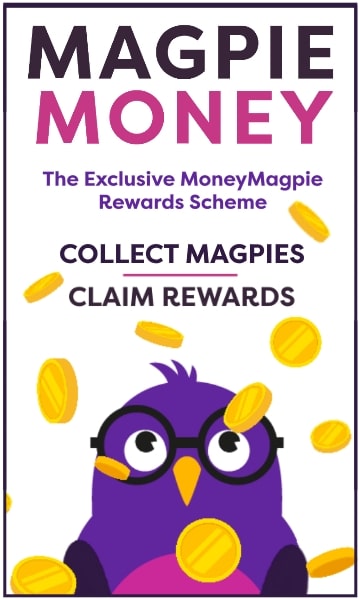Cashless society
Home › Messageboards › Banking and Financial Services Forum › Cashless society
- This topic has 9 replies, 7 voices, and was last updated 2 years, 1 month ago by
 Frances.
Frances.
-
AuthorPosts
-
August 8, 2020 at 07:34 #156501
 FrancesParticipant
FrancesParticipantThese days we seem to becoming railroaded into a cashless society, and I don’t think it’s a good idea.
I understand that with virus issues, that cards are the only acceptable payment method at present, but I’m hoping that this will not continue when we are back to living our ordinary lifestyle.
Using cash makes it easier to budget, you know how much money is in your purse or wallet, and once spent you can’t spend more. Vulnerable people may not be allowed a card, and many don’t use computers or the internet. Is card usage one of the reasons so many people are in debt?
How would they manage without being able to pay cash for transactions? They would lose their independence, having to rely on others to help. What if someone loses their card, or is has been scammed? Without cash as a backup, you could become very vulnerable indeed.
August 12, 2020 at 16:55 #156632 Jasmine BirtlesKeymaster
Jasmine BirtlesKeymasterI agree. I’m a big fan of cash (although, being an urbanite, I use cards a lot more). My interest in cash is that it is anonymous and ‘they’ (the Government, the big tech companies and others) can’t monitor our use of it as they can with cards. I think it’s very important to keep cash going if we as individuals are to have any autonomy over our lives.
I also feel that it would put us all in a vulnerable position if we became a cashless society. Think of how easy it is for a country like, say, China to do a big hit on our web and broadband systems. There was a day a couple of years ago when the O2 system went down and shops, taxis and more couldn’t get paid with cards. This is all too possible and I would like us to have a back-up of cash. I think the Swedes are wishing they hadn’t gone cashless.
August 27, 2020 at 09:26 #156912 AnnieKeymaster
AnnieKeymasterWhile I like the convenience of things like tap and pay, I’m a big advocate for cash in the majority of instances. I like to be able to see how much money I’m physically spending, and when I was hugely in debt about ten years ago I used cash envelopes to budget for bills each month. It really helped stop me applying for credit and learn to live within my means!
Getting rid of cash altogether alienates many people, so I’m hoping it won’t happen. However, an argument I had with the grocery shop cashier suggests shops will try to push it. (Argument: cashier told me to pay by card, even though I had the cash in my hand. Insisted I had to pay by card because cash wasn’t safe to handle – I said I had no card that could be used and he could either accept my cash or put everything back on the shelves. It was my Big Shop. He chose to take the cash – proving that they DO take cash, but try to push card payments wherever possible!).
August 27, 2020 at 10:03 #156916 FrancesParticipant
FrancesParticipantWell done for standing up to the cashier who refused take accept cash as payment.
It seems that most people are in agreement that a ‘cashless society’ would be a negative step to take, for so many reasons already stated. The consumer organisation Which? ran a campaign to keep cash payments available a short while ago, which was hugely successful.
However Tesco and other stores have been trialling new stores in certain areas where they will refuse cash as payment. I haven’t heard how successful this has been.
It looks like we will have to keep battling on and refuse to be domineered by big multinationals.
August 27, 2020 at 14:33 #156922 ROSEMARYParticipant
ROSEMARYParticipantl agree l hope we don’t end up a cashless society, using cards all the time, l can’t keep up with the bank statement.
lf the assistant refused my cash, l would leave my shopping on the counter.
March 7, 2021 at 05:38 #160090 AnthonyParticipant
AnthonyParticipantThis is a difficult topic to address thoroughly because no-one can know for sure how the future will pan out. It does appear to me though, that people’s relationship with money will be among the most enduring legacies of the current sars coronavirus pandemic.
About a year ago, people had a stilted attitude to touching objects that other people had touched, but bizarrely seemed less concerned about their proximity to others and the air they were breathing. Assuming that the companies that make physical cash won’t start making money with a microban surface, it does look like the beginning of the end for hard cash. As soon as the demand for a product, service or concept drops below a certain threshold, it loses its relevance and gets consigned to the dustbin of history. (Recall video shops, public telephones, football pools, and directory enquiries, for example.) With fewer people using cash, there will be fewer ATM machines on the high street, meaning fewer people will be able to withdraw cash, and so on.
The argument made for cash being easier to budget with is another reason why cash may be on the way out. Businesses don’t want frugal customers, they want big spenders. Why would they be satisfied to let someone be limited to the £20 they have in their pocket when they could potentially have what is left in someone’s bank account, or even more given that some credit cards have the contactless facility now?
Without cash, companies don’t have to pay staff to collect, count and bank it. There are fewer opportunities for pilfering if it isn’t in a tangible form and there isn’t the headache of deciding if a coin or banknote is counterfeit or not. Companies do have to pay a charge for card transactions, but if all companies in direct competition with each other end up paying it, they won’t care because all prices will rise across the board with the effect that people who pay by cash will be paying more so that others can pay by card, without those companies themselves losing market share.
With retail becoming increasingly automated, (I believe that Amazon are opening a shop without tills in the UK soon), there are likely to be fewer and fewer places that you can spend any cash you have.
No-one is guaranteed never to lose a bank card or be targetted by fraudsters, but there are measures that can be taken to mitigate against losses or disruption. If you were to have three current accounts with the same bank, you could have your salary paid into the first account and transfer money into the second account each time you wanted to spend it and use that card for purchases. If you kept the card for the first account in a safe place at home, it would be much safer than using it for everything and carrying it everywhere you went. If you were to lose the card associated with the second account, you could then use the card for the third account while you waited for card number two to arrive. Less risk and less disruption.
March 7, 2021 at 07:18 #160092 FrancesParticipant
FrancesParticipantI really hope that you’re wrong in your assumption that we will soon become a cashless society, although I fear you may be right!
I agree that companies care more about profit than their customers’ financial welfare, but with the amount of debt in this country, we should all be concerned. We should help people with overwhelming debt to learn the concept of finance. and how it works. The cost of buying using credit can become overwhelming, and more should be taught both at home and in schools.
Although there are many advantages to using cards, ie counterfeit banknotes are a problem, there is a much bigger risk using cards. The threat of identity theft, being scammed by criminals, losing your card, having it stolen… The list is endless!
What about elderly people who have neither a computer or mobile phone? There are several elderly people I know who would lose their independence if they were unable to use cash when shopping. Your ideas regarding people opening several accounts to mitigate losses may be useful for many, though not helpful for those who do not understand the concept of the internet and how it works.
Amazon have now opened their new shop in London, which is totally cashless. I believe that Tesco have also opened a cashless store. During the pandemic many stores have refused to accept cash, and customers could only pay using cards.
While cards are useful if many instances, flashing a card through a machine at the store can be easier that using notes and coins, it doesn’t feel as real as the cash in your pocket. Once it’s gone – it’s gone! You know where you are.
Which? have been running a campaign to stop us being forced into becoming a cashless society. I really hope they are successful! It is so necessary for many.
November 18, 2022 at 10:41 #177608 Isobel LawranceModerator
Isobel LawranceModeratorI absolutely love cash. Admittedly, I don’t carry it ALL the time, but I find it is really good for certain purchases, or when I know independent businesses will get more money if I pay with cash, etc.
November 21, 2022 at 10:16 #177692Marc Crosby
KeymasterI’m that typical hypocrite who absolutely values the need for cash but tends to pay most things by card these days.
There are so many reasons why a purely digital currency scares me, though, so I will always argue for the necessity of cash.
November 21, 2022 at 10:24 #177693 FrancesParticipant
FrancesParticipantThe system seems to be set against the use of cash. With so many ATM machines disappearing, and others with cracked screens, it’s becoming difficult to find an ATM machine which actually works.
-
AuthorPosts
- You must be logged in to reply to this topic.





